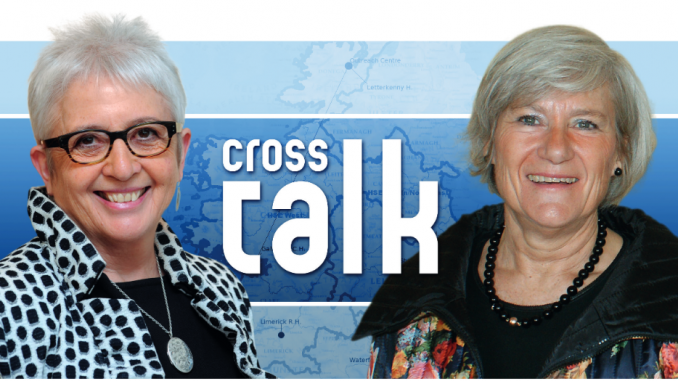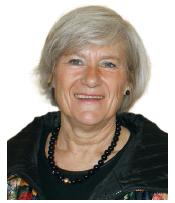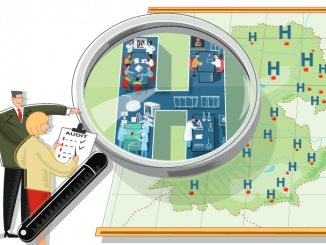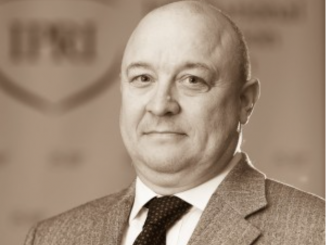
Is the centralisation of cancer services justified? Could many cancers be treated more locally without compromising safety? Cancer World’s Anna Wagstaff posed this question to two experts: Susan O’Reilly and Renée Otter.
In an effort to improve outcomes, some countries are concentrating the care of cancer patients in a few designated centres, where they can be seen by specialists who work in multidisciplinary teams that are entirely focused on specific types of cancer.
In Ireland, the majority of cancer patients are now seen at only eight centres – fewer if the cancer is particularly rare or complex. Each centre covers a population of at least 500,000. Four are located in the area around the capital city Dublin, on the east coast, where the population density is 1200 people per km2. The other four are spread around the rest of the country, where population densities are closer to 30 people per km2.
One consequence is that many patients must now travel much further from home. In more remote areas the journey can take two hours by car – longer by public transport. Help with travel costs is available in cases of genuine financial hardship.
Is this scale of centralisation justified? Could many cancers be treated more locally without compromising safety? Cancer World’s Anna Wagstaff posed this question to two experts: Susan O’Reilly, Director of the Irish National Cancer Control Programme, and Renée Otter, former Director of the Northern Comprehensive Cancer Centre in Groningen, who made the case to keep services more local when similar reorganisation plans were discussed in The Netherlands.
Susan O’Reilly
 The change to more centralised cancer services in Ireland came in response to two drivers. One was a series of ‘scandals’ highlighted in the media around errors or delays in diagnosis and treatment, particularly in breast and colon cancer. The other was the EUROCARE results, which showed cancer outcomes in Ireland were not very good. As Ireland had already been investing in more and better-trained cancer specialists, the problem seemed to lie in the way services were being delivered, with poor coordination and lack of streamlining.
The change to more centralised cancer services in Ireland came in response to two drivers. One was a series of ‘scandals’ highlighted in the media around errors or delays in diagnosis and treatment, particularly in breast and colon cancer. The other was the EUROCARE results, which showed cancer outcomes in Ireland were not very good. As Ireland had already been investing in more and better-trained cancer specialists, the problem seemed to lie in the way services were being delivered, with poor coordination and lack of streamlining.
One of the big challenges we faced was fragmentation of surgical services. This was worst for breast cancer, where surgery was being carried out in more than 32 hospitals. In some hospitals, surgeons were operating on a very small number of cases, and many of them did not have medical or radiation oncologists on site to provide multidisciplinary care.
There is also a body of literature that drove thinking around surgical services, with studies linking better outcomes to specialist training and high volumes.
So the obvious proposal was to stop offering breast cancer services in hospitals that did not have a critical mass of patients or staff to do the job to a high standard. The hypothesis is that you can offer patients an opportunity to be treated in expert hands where you have a well-trained surgical oncologist, or at least a surgeon with a high volume of cancer practice, working with a critical mass of other cancer specialists, including medical and radiation oncologists, and with specialist pathology and radiology.
The first big change we made was in breast cancer, where services were moved entirely into the eight designated cancer centres. The other services were closed and those hospitals are no longer involved in either diagnosis or surgery. Time limits to referral were agreed, for instance two weeks for urgent breast cancer, and compliance is carefully monitored. We then moved on to other cancers, which have now been centralised to a greater or lesser extent.
Renée Otter
 I agree it is important to make sure no patient is diagnosed or treated by doctors who work outside a multidisciplinary team, or who do not have appropriate specialist training, or see too few patients to keep up their skills. But for most cancers this can be achieved without a high degree of centralisation.
I agree it is important to make sure no patient is diagnosed or treated by doctors who work outside a multidisciplinary team, or who do not have appropriate specialist training, or see too few patients to keep up their skills. But for most cancers this can be achieved without a high degree of centralisation.
While very small hospitals should clearly not be involved in cancer, the evidence for centralising all services is not very convincing. It focuses largely on the relationship between outcomes and surgical caseloads, and most of the studies don’t take into account other issues such as training, wait times, the input of other disciplines, and whether the patients were cared for by a collaborative multidisciplinary team. Some studies look at surgeon caseloads, others at team or hospital caseloads, and there is little clarity about what the minimum caseload for different types of cancer should be.
There is an alternative. If all teams operate according to national guidelines for diagnosis, staging and treatment, and all specialists have appropriate training and qualifications, and their performance and outcomes are monitored, this would put an end to substandard treatment. Furthermore, we could get some reliable evidence about how few patients are too few, and about the extent of centralisation that is really needed for different types of cancer.
The real problem is that many countries do not have national evidence-based guidelines for diagnosis and treatment. Most countries also have no recognised specialist training for surgeons, for instance in breast cancer, colorectal cancer, urological cancers etc, even though these surgeons call themselves specialists. Very few countries have proper quality control in place to ensure that guidelines are being followed and outcomes are in line with what would be expected. These are the issues that need to be addressed.
 It’s true that a lot of evidence relates purely to surgical procedures: how many lymph nodes were removed? were the margins clear? what procedure was used (eg meso-rectal excision in rectal cancer)? Or it looks at short-term outcomes such as 30-day morbidity or mortality. But when you do the analysis you see very compelling data that high-volume surgeons and the specialist centres do it better.
It’s true that a lot of evidence relates purely to surgical procedures: how many lymph nodes were removed? were the margins clear? what procedure was used (eg meso-rectal excision in rectal cancer)? Or it looks at short-term outcomes such as 30-day morbidity or mortality. But when you do the analysis you see very compelling data that high-volume surgeons and the specialist centres do it better.
There are also practical considerations. To get a critical mass of specialists and sub-specialists you have to have a hospital facility large enough to be able to recruit and retain surgeons, radiation oncologists and medical oncologists and others. They need to feel they have academic opportunities and sufficient volumes of work to keep up their skills. Radiation oncology services anyway tend to be attached to the larger hospitals, because of the capital cost. Then there are other specialties; for example, most smaller hospitals cannot offer immediate plastic reconstruction of a breast following surgery.
I do agree about the importance of national guidelines in reducing substandard treatment, but many countries don’t yet have them – including Ireland, where they are in development but not yet finalised. But it’s not enough to have them, people need to know they are there, and adhere to them. Monitoring adherence can be done at more sophisticated cancer centres which register patients and their treatment on databases. But this doesn’t happen in small communities. It is technologically feasible, but it requires a lot of cooperation by the hospitals, who must do the data capture, and by the clinicians who may feel they are being scrutinised and criticised and may not wish to participate.
In a perfect world of evolving IT and electronic health records it might work. But right now, even cancer registries are spotty across Europe. Some do a great job and gather diagnosis, stage, treatment and date of death, but some of the best health systems, like France, still have no national registry. Good data management is essential, but it takes years to evolve, and right now we need to take care of the patients we have.
 I agree that practitioners often resist being obliged to work according to guidelines and don’t like their work to be scrutinised, but is that a good enough reason to centralise services, and require patients to travel further?
I agree that practitioners often resist being obliged to work according to guidelines and don’t like their work to be scrutinised, but is that a good enough reason to centralise services, and require patients to travel further?
Remember that more than 65% of cancer patients in Europe are aged over 60 when diagnosed – many are in their 70s and 80s – and many also suffer additional health problems, which can make mobility a problem. Their partner and friends, on whom they may rely for support and assistance, will be of similar age. Furthermore a lot of patients – between 30% and 45% across Europe – are diagnosed when their cancers are too advanced to be curable. For these patients, quality of life, including being able to stay at home, becomes very important.
Centralising cancer services also deprives local hospitals of the skills they need to diagnose the cancer in the first place and to treat patients who are admitted on an emergency basis – which includes almost all patients with colorectal cancer. Palliative care is typically provided at a local level, and should be an integral part of a patient’s treatment. It should be provided by people with expertise in the problems associated with particular types of cancer, working as part of the team.
This is why it is better to have the multidisciplinary teams operating as locally as possible, with referral to specialist centres being reserved for very rare cancers or cancers that are highly complex or expensive to treat.
I agree that specialists don’t want to be working in an isolated backwater, and will want to participate in discussions about how to improve outcomes and in research. But they can do this if they are part of a national network. It doesn’t necessarily mean everyone being physically in the same centre. If necessary to keep their skills up, teams – or some members of the team – can cover more than one hospital in their region.
 The key thing is to get the first decisions right – the diagnosis and staging and treatment plan –and the best way to make sure this happens is to go to a dedicated cancer centre.
The key thing is to get the first decisions right – the diagnosis and staging and treatment plan –and the best way to make sure this happens is to go to a dedicated cancer centre.
In reality most practitioners in smaller services don’t network in to multidisciplinary teams. It sounds fine to say it, but you can’t demonstrate it in most healthcare systems. And while there is debate about what the minimum caseload should be for each particular type of cancer surgery, we know that surgeons who work in smaller services are more likely to provide substandard care. This is because they have to cover a wide range of procedures, they may not have time to assimilate the literature, or they just like to stick to old habits and no-one is looking over their shoulder to make sure they do it right. Before we centralised breast cancer surgery, many surgeons were still not doing sentinel node biopsies.
Of course patients don’t welcome having to travel, and there may occasionally be patients who are so frail that referring them to a cancer centre may be inappropriate. But in general, that initial expert multidisciplinary team consultation is essential whether the treatment will be curative or not, and you can’t always know whether a cancer really is incurable until you have done sophisticated tests such as PET for lung cancers, which can only be done at larger centres.
A lot of the treatment can then be done closer to home. In Ireland we have 25 hospitals that can deliver some chemotherapy, often under supervision of oncologists, while community nurses are trained to take care, for instance, of infections, and to disconnect a central line or disconnect pumps so patients don’t have to go back to the treatment centre. Control of symptoms – pain, nausea, anorexia, fatigue, constipation, all the usual miseries – is best delivered by a palliative care team as close to home as possible.
 I am not against cancer centres. I am against a system that obliges all patients to go to one.
I am not against cancer centres. I am against a system that obliges all patients to go to one.
Even in a country like Ireland, which has large areas of very low population density, there will be three or four hospitals in every region large enough to have the organisation and expertise to deal with many cancers, provided they work closely with a regional cancer centre, and everyone works to national guidelines.
It is in these hospitals, not the cancer centres, where the “first decisions” are made – the initial diagnostic tests and the first steps of staging. So having national guidelines that set down which tests are appropriate and how they should be done, and ensuring they are followed at every level, is a priority that cannot wait.
The question is then what happens next. There will be patients who should be referred to a regional cancer centre, but there will be many who can be safely managed in a good-sized hospital closer to home. Criteria for referral should be set down in the national guidelines, and where there is any doubt, the decision can be made in consultation with a team at the regional cancer centre.
In some countries with very low population density, such as Wales, videoconferencing is routinely used by local teams to hook up with the regional centre to discuss patients. Multidisciplinary teams can also cover more than one hospital in a locality if caseloads for a specific type of cancer at a particular hospital are deemed to be too low.
The thing about cancer centres is that they are highly oriented towards research. This works well for patients who want to go all out for a cure and get access to all the latest trials. But many patients whose cancers have been picked up too late and who have other health issues – heart, circulation, diabetes – which are not the concern of cancer centres, may want the option of having all their care organised from a single good-sized hospital closer to home. I think there is a danger of looking at things too much from the perspective of specialists who are highly focused on just the cancer, and we don’t think enough about the other problems, health or otherwise, that a patient may have.





